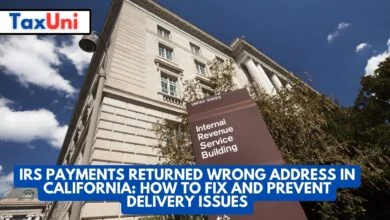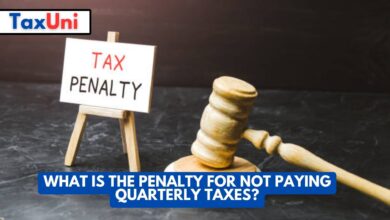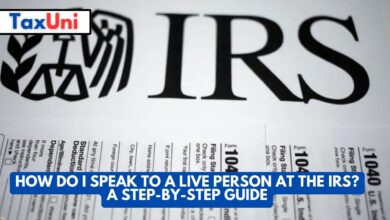When the IRS Classifies My Business as a Hobby?
This article explains what happens when the IRS classifies your business as a hobby, why it matters for your taxes, and how to avoid common pitfalls-especially if your passion project is starting to make money.

Contents
Ever wondered what happens when the IRS classifies your business as a hobby? If you’re turning your creative passion or side hustle into a source of income, understanding the difference between a hobby and a business is crucial for your tax situation. The IRS uses a set of specific guidelines to determine if your activity is a business or just a fun pastime, and this classification can have a big impact on how you report income, whether you can deduct expenses, and how much tax you ultimately owe. When the IRS classifies your business as a hobby, you lose the ability to deduct expenses related to your activity, which means your taxable income could be higher than expected. The distinction hinges on factors like whether you operate in a businesslike manner, keep accurate records, depend on the income for your livelihood, and-most importantly-whether you’re genuinely trying to make a profit. If your business claims losses year after year, or if you’re doing something that looks more like fun than work, the IRS may decide it’s a hobby, not a business, and you’ll need to report your income differently. Knowing these rules can help you avoid surprises at tax time and keep your creative dreams on the right side of the law.
What’s the Difference? Hobby vs. Business
The IRS draws a clear line between activities done for fun (hobbies) and those pursued to make a profit (businesses). If you’re baking cakes, crafting jewelry, or photographing weddings, the key question is: are you running things with the intention of making money, or just enjoying yourself and earning a little extra cash on the side? The IRS looks at factors like:
- Whether you keep complete and accurate books and records
- The time and effort you put into the activity
- If you depend on the income for your livelihood
- Your history of making a profit in similar activities
- Whether you change your methods to improve profitability
- If you have the knowledge needed to succeed
- Whether losses are due to circumstances beyond your control
- If you expect to make a future profit from the appreciation of assets used in the activity
- The presence of personal pleasure or recreation in the activity
No single factor is decisive; the IRS considers the full picture.
The Hobby Loss Rule: Why It Matters
If your business claims a net loss for too many years or fails to show a profit motive, the IRS may classify it as a hobby. This triggers the “hobby loss rule,” which means you can’t deduct any expenses or losses related to the activity on your tax return. Since 2018, miscellaneous itemized deductions-including hobby expenses-are not deductible, so you must report all hobby income as taxable, but you get no offsetting deductions.

How the IRS Decides: The Profit Test
There’s a “bright-line” test: If your activity makes a profit in at least three out of five consecutive years, the IRS presumes it’s a business. For horse-related activities, it’s two out of seven years. If you don’t meet this test, you’ll need to prove your profit motive using the other factors mentioned above.
Tax Implications: Hobby vs. Business
- Hobby Income: Taxable as ordinary income, reported on Schedule 1 (Form 1040). You cannot deduct any expenses related to the hobby.
- Business Income: Reported on Schedule C (Form 1040), where you can deduct business expenses. You may also owe self-employment taxes (Social Security and Medicare) if you’re running a business.
Misclassifying your income can lead to tax penalties and interest, so it’s important to get it right.
How to Avoid Hobby Classification
To keep your business from being classified as a hobby:
- Operate in a businesslike manner: keep detailed records, separate business and personal finances, and have a business plan.
- Show a clear profit motive: advertise, invest in equipment, and make changes to improve profitability.
- Dedicate significant time and effort to the activity.
- Seek advice or training to improve your chances of success.
- Document any years where losses were due to circumstances beyond your control.
- Be prepared to demonstrate your intention to make a profit if challenged by the IRS.
What If the IRS Classifies My Business as a Hobby?
If the IRS decides your activity is a hobby, you’ll need to:
- Report all income from the activity as “Other Income” on your tax return.
- Forego any deductions for expenses related to the activity.
- Possibly pay more tax than if your activity were classified as a business.
If you disagree, you may need to provide evidence of your profit motive and businesslike practices to challenge the IRS’s determination.

FAQs
Q: What happens if the IRS classifies my business as a hobby?
A: You must report all income, but you cannot deduct any expenses related to the activity, which may increase your tax bill.
Q: How can I prove my business isn’t a hobby?
A: Keep thorough records, show a profit motive, operate professionally, and make changes to improve profitability if needed.
Q: Do I have to pay taxes on hobby income?
A: Yes, all hobby income is taxable and must be reported on your tax return.
Q: What is the “three out of five years” rule?
A: If your activity makes a profit in at least three of the last five years, the IRS generally presumes it’s a business, not a hobby.





